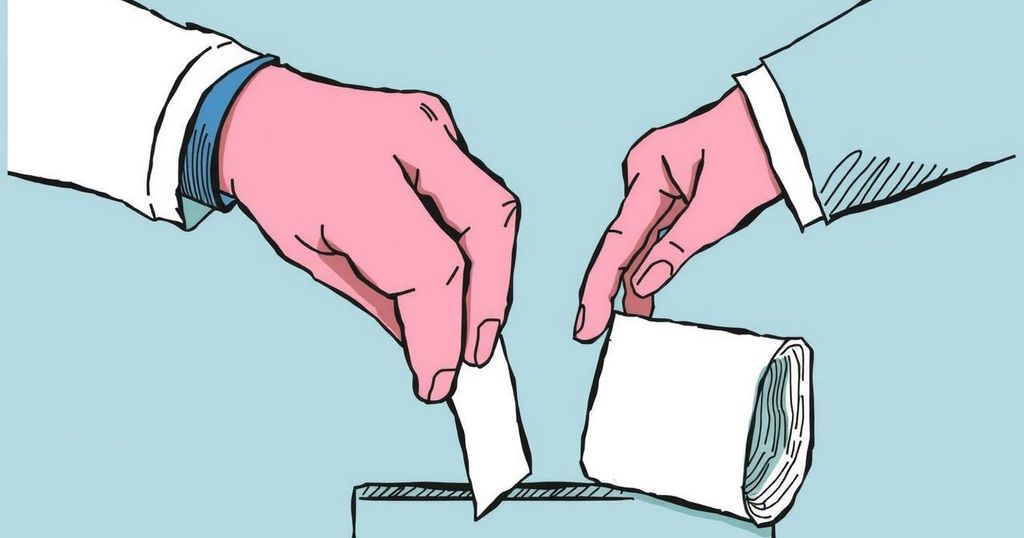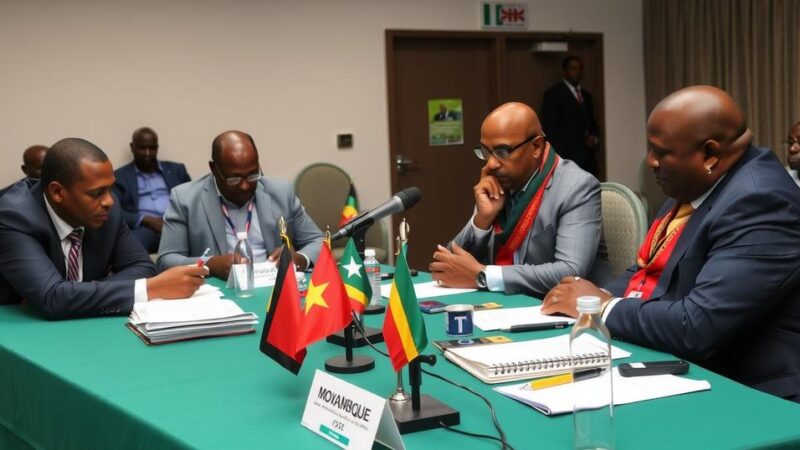In a stunning setback for election reform advocates, voters decisively rejected nearly $100 million worth of proposed initiatives aimed at changing party primaries and implementing ranked-choice voting across several states. Alaska remains the only state to uphold its Final Four Voting system, highlighting difficulties in effectively marketing reform ideas to the public. Critics and supporters alike acknowledge the complexity and partisanship surrounding these proposals, revealing a crucial need for reevaluation moving forward.
In various states across the nation, voters decisively rejected a multitude of election reform initiatives that aimed to address persistent issues of political gridlock and partisanship. Funded by nearly $100 million, these initiatives sought to abolish traditional party primaries and implement ranked-choice voting systems. Despite extensive promotion, the proposals failed to gain traction in numerous states, including traditionally liberal regions such as Colorado and Oregon, as well as battleground states like Nevada and Arizona, revealing the difficulties reform advocates face in convincing voters of the merits of such changes.
Alaska stood out as the sole state to endorse a reform, narrowly voting to retain its Final Four Voting system, which combines nonpartisan primaries with ranked-choice elections. Advocates had hoped to leverage Alaska’s unique system to inspire similar initiatives elsewhere, but the widespread rejection of reform measures underscored the inadequacies in the current approach to marketing these complex changes to voters. Katherine Gehl, a prominent supporter of Final Four Voting, admitted, “We have totally failed at the marketing.”
The challenges facing election reform proponents were amplified by the complexity of ranked-choice voting and the growing partisan divide around the issue. While reformers insisted that their proposals were bipartisan, resistance primarily emerged from Republican quarters, with some critics labeling the initiatives as tools for oligarchy aimed at manipulating electoral processes.
The mixed reactions to the Final Four Voting system in Alaska illustrated the potential benefits it could offer, as it had previously facilitated bipartisan governance and enhanced voter representation. Nevertheless, opponents have mounting evidence suggesting that ranked-choice voting has not significantly improved local elections or governance in states like Maine or cities like New York and San Francisco. This complicated relationship with voters suggests that advocates must either simplify their proposals or rethink their messaging to attain broader acceptance.
The political landscape remains fraught with challenges for proponents of reform, as evidenced by the failure of previously approved measures in Nevada. This prompts concerns regarding how reform ideas will be received, especially considering the politically diverse climate. After narrowly losing the Nevada vote for a second time, advocates lamented that despite widespread dissatisfaction with current political structures, finding a unifying solution has continued to elude them.
In summary, the recent electoral outcomes present a significant setback for advocates of election reform who are now at a crossroads. Moving forward, some proponents are considering adjustments to their strategy while exploring more approachable proposals to enhance voter engagement. The complex nature of the proposed reforms and the effectiveness of their promotion will ultimately determine the future of election reform in America, as it is clear that educating voters remains a crucial challenge. While the resounding defeat at the polls may discourage some, others see potential for gradual change, likening their efforts to historic social movements that faced initial obstacles before achieving success.
The article discusses the recent failure of numerous election reform proposals across several states in the United States, particularly focusing on the challenges faced by advocates of ranked-choice voting and nonpartisan primaries. Despite a substantial investment of nearly $100 million aimed at addressing issues of polarization and political gridlock, voters largely rejected these initiatives. The text highlights the mixed results in Alaska and explores the implications of the failures in other states, presenting insights from reform supporters and critics.
The recent election results reveal a complex and challenging landscape for proponents of election reform, who face significant opposition in convincing voters of the merits of ranked-choice voting and related initiatives. While Alaska remains a lone success story for the Final Four Voting system, the overall rejection of reform measures indicates a need for advocates to reassess their strategies and communication methods in order to gain broader acceptance and overcome voter skepticism. This suggests that while there is a desire for political change, successfully implementing such reforms will require time, education, and possibly simplification of proposals to resonate with the electorate at large.
Original Source: www.theatlantic.com







